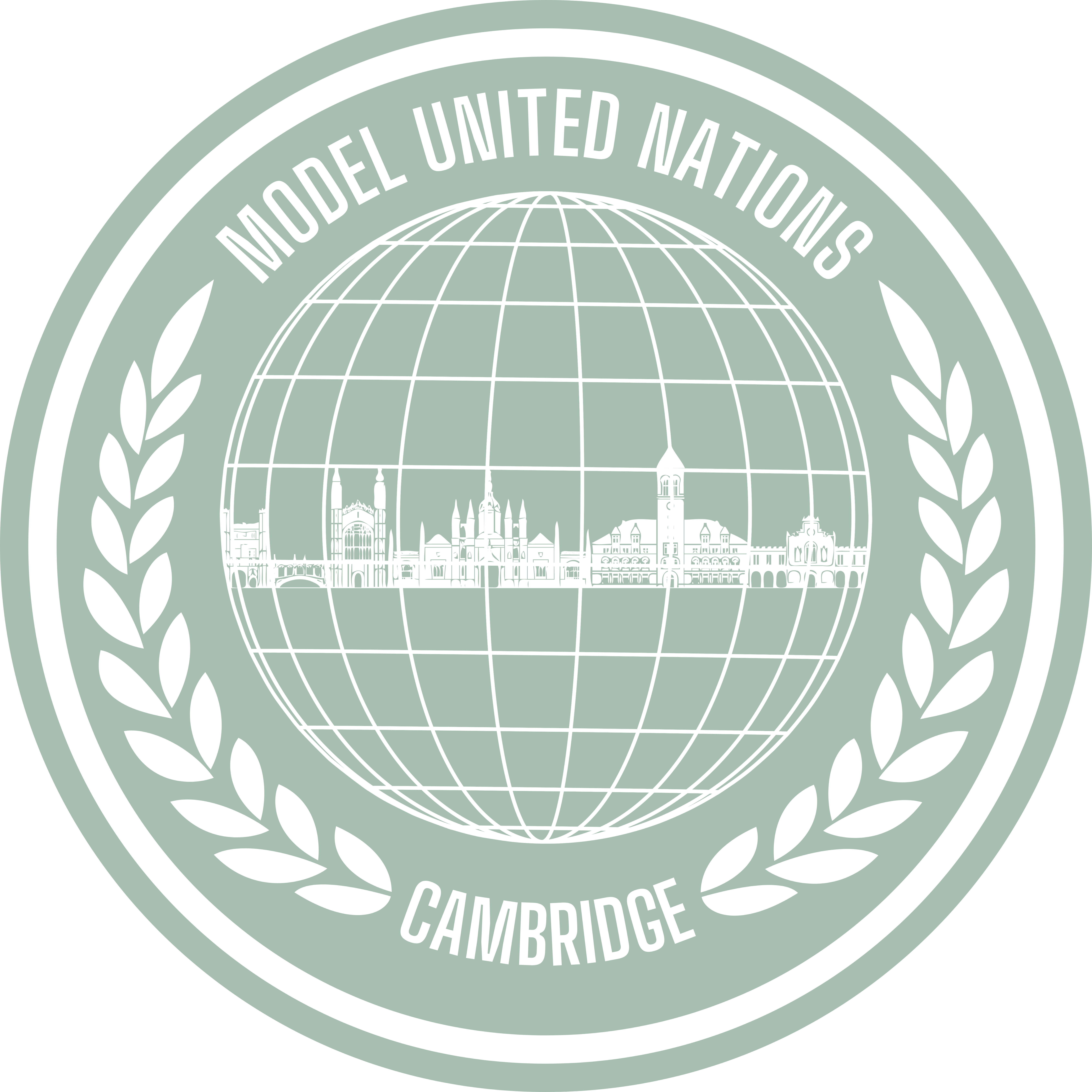What is munoc?
Model United Nations (MUN) is a simulation of the United Nations conferences. Students are given the opportunity to take on the role of delegates from UN member states – debating contemporary issues, making speeches, writing resolutions, and breaking political stalemates to reach solutions to major global problems.
MUNoC is an inclusive event that brings together students from various schools to engage in stimulating debate, develop diplomatic skills and gain a deeper understanding of pressing global issues. This year, we are excited to offer a diverse range of committees and topics that are tailored to both challenge and inspire delegates, providing them with a unique platform to voice their perspectives and develop a deeper understanding of international relations.
What to Expect:
Engaging committee sessions led by experienced chairs
Opportunities for students to develop public speaking, negotiation and leadership skills
Collaboration with young people from schools around the UK
useful terminology
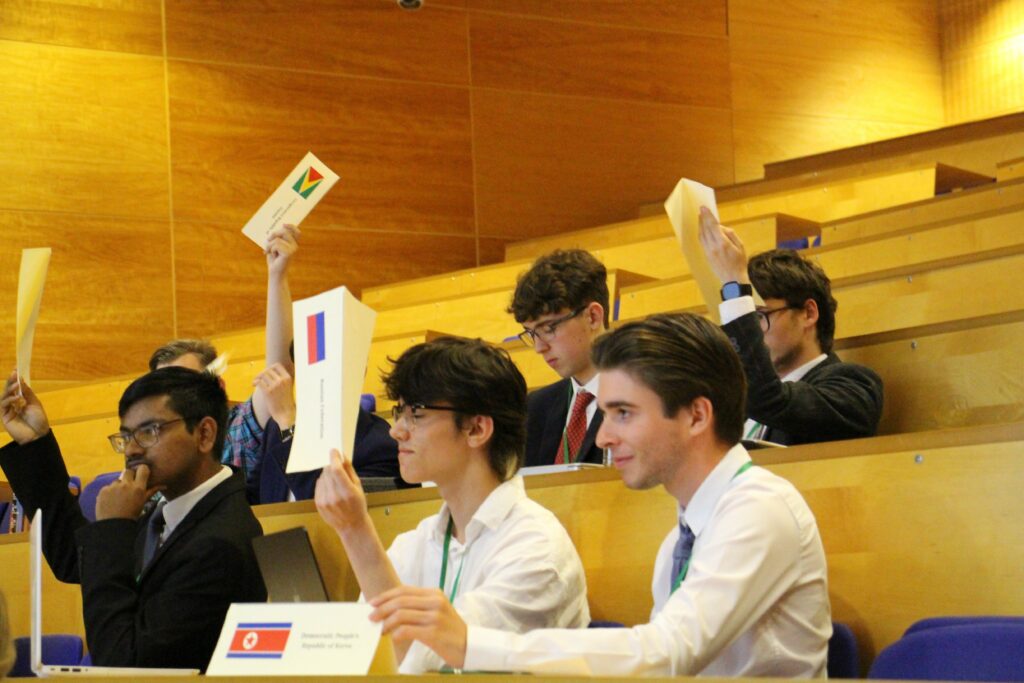
Delegates are participants in MUNoC. Each delegate is assigned to a committee, where they will represent a specific country. All the delegates from a country make up a delegation. All delegates must represent the values and beliefs of the delegation they are representing at all times. They must work collaboratively and diplomatically during debates and use analytical thinking skills to address a committee topic.
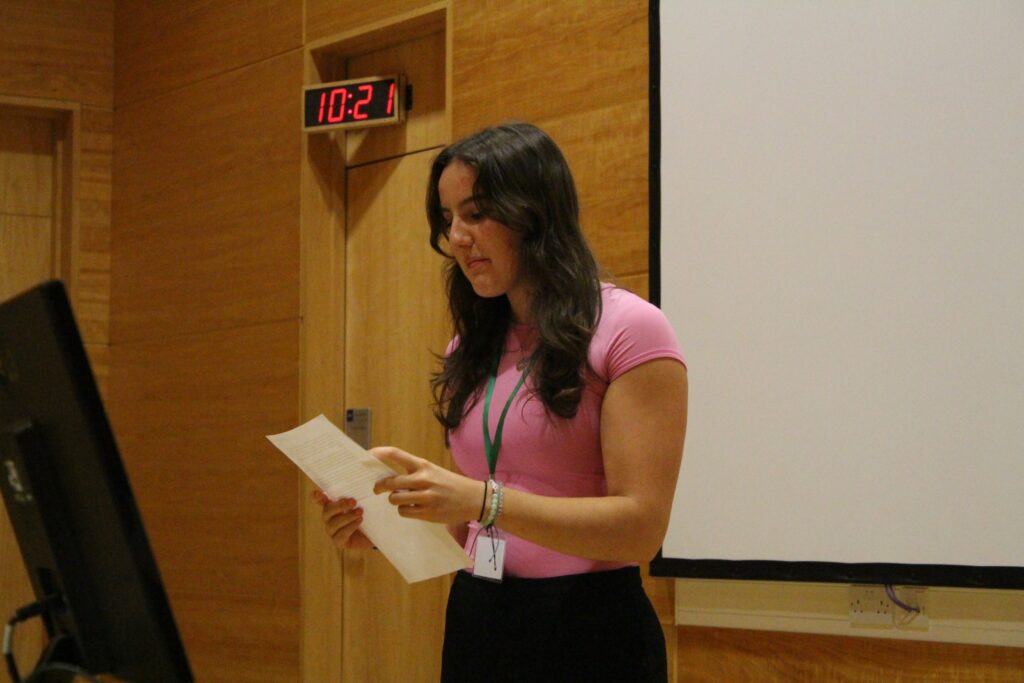
Ambassadors are allocated to one delegate from each delegation. They ensure all preparation work is completed before the deadline and that the delegates work collaboratively. Ambassadors are tasked with giving a one minute speech at the beginning of the first day of the conference to present the initial interesets of their delegation in the issues debated at MUNoC, summarising the research of the delegation.
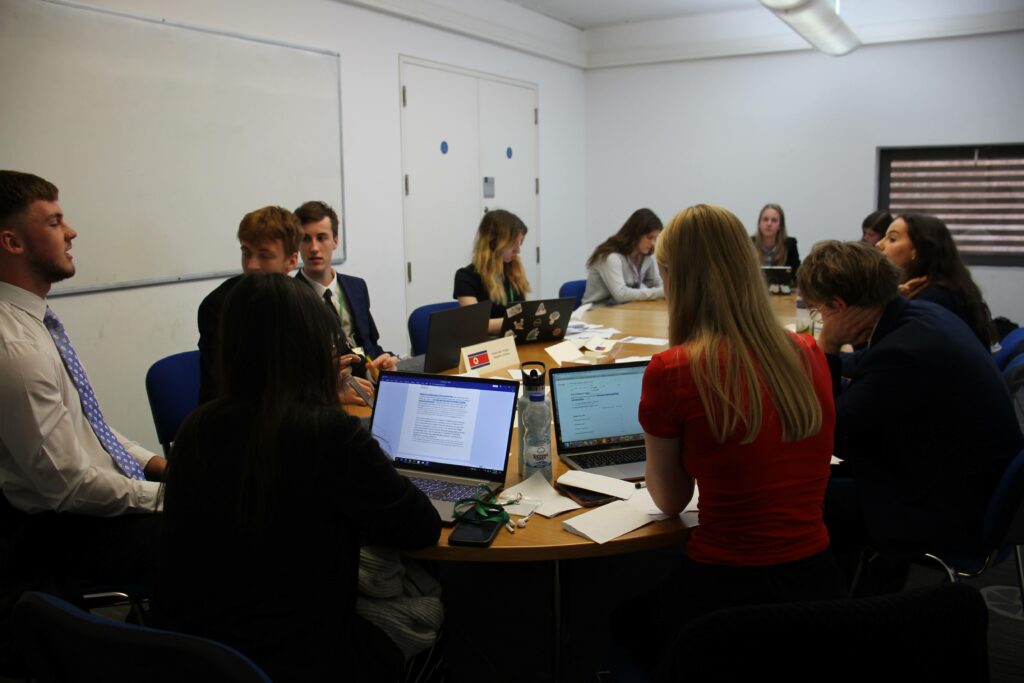
Committees are smaller groups of delegates from different delegations which debate different issues. For example, a committee may focus on human rights, whereas another may focus on international security. Committees involve debating one topic between the viewpoints of different countries represented by delegates.
CONFERENCE BREAKDOWN
Before the conference: preparation
1. Position papers
Before the conference, delegates will be given information on the topics that will be debated in their committees. They will then further research their assigned country’s views on the issues and compile a position paper. Position papers are essential to have a good understanding of the values of the country you will be representing. They only need to be brief, acting as a summary of the beliefs of your delegation. It is essential to maintain these views across all delegates in the delegation and throughout the conference.
- The template for writing position papers can be found here in the Document Archive.
2. Resolutions
Your delegation will also need to come to the conference with resolutions prepared. Resolutions are formal documents suggesting solutions addressing a specific problem. During the lobbying stage of the conference, delegates attempt to get other delegations to sign their resolution, signalling their interest in possibly debating the issue. If enough signatures are gained, the resolution Resolutions are written by delegates and must follow a specific structure.
- The template for writing resolutions can be found here in the Document Archive.
Here are some examples of passed resolutions from 2024 :
Day one: Lobbying
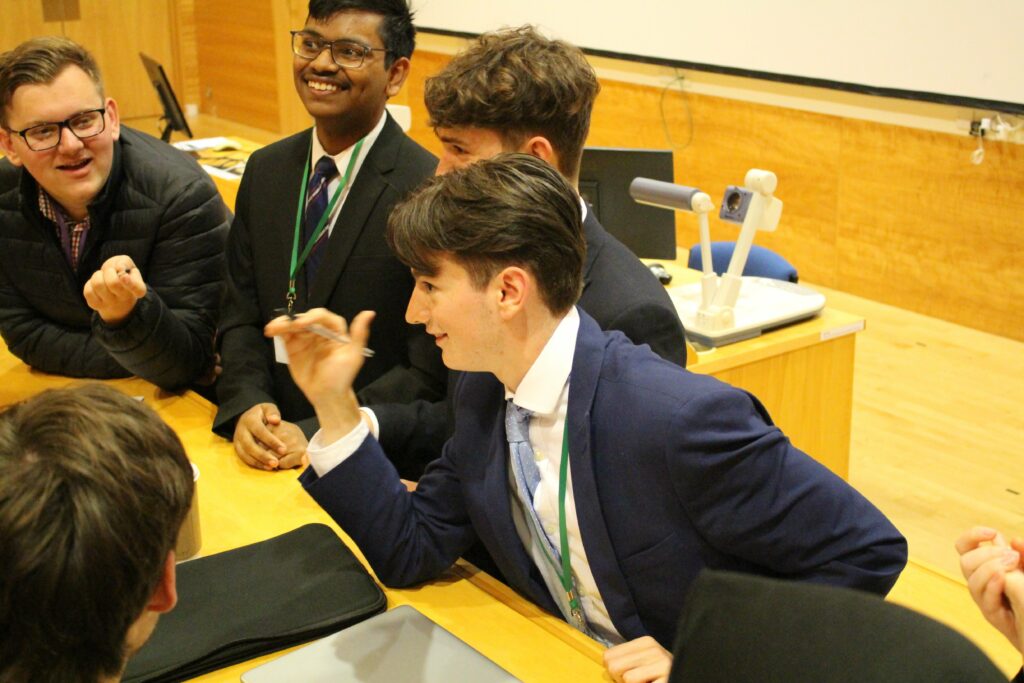
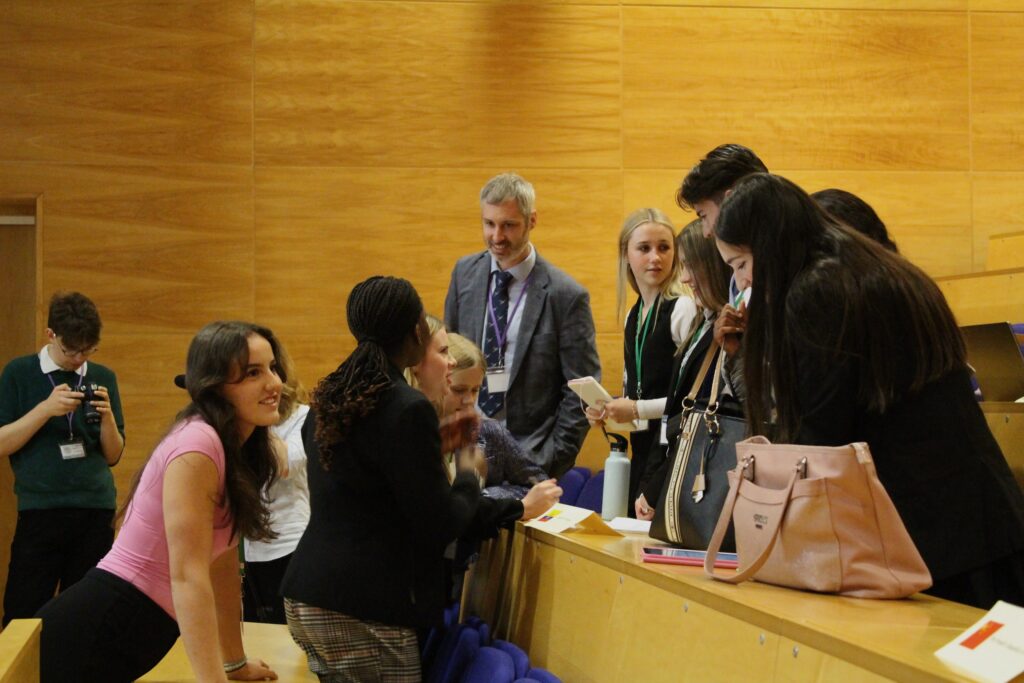
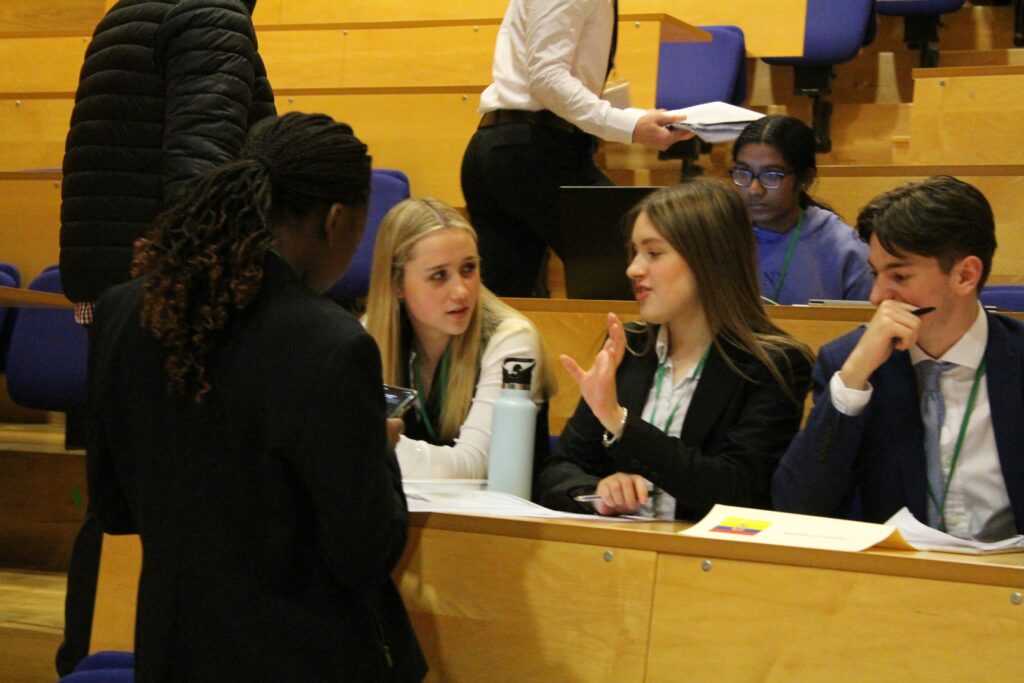
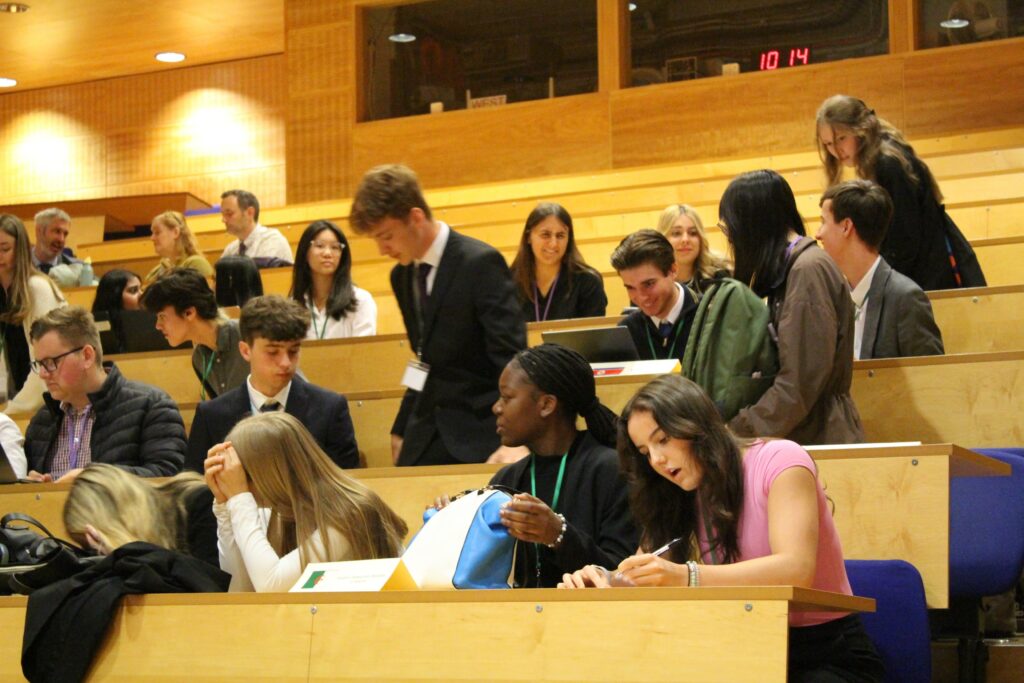
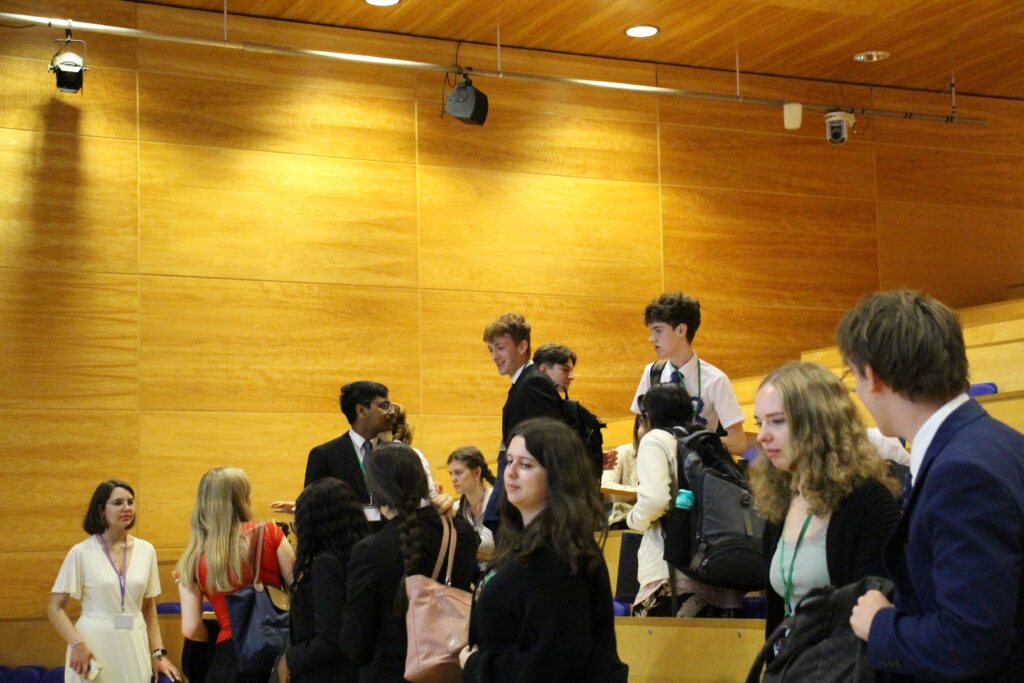
On the first day, delegates will then spend some time lobbying. In lobbying sessions, delegates try to convince other delegates that their resolution should be debated. They may need to make key deals with other delegations in order to appeal to their values, gain signatures and have a better chance of getting their resolution signed. The resolutions will then be processed by a reviewing panel before they are either passed or not passed. If passed, they are ready to go on to the next stage: debating.
Delegates can also use lobbying sessions to gauge other delegates’ positions in relation to their own. They will begin to form alliances with others and figure out who they can side with on the upcoming debates as well as who they will disagree with.
DAY TWO: Debating
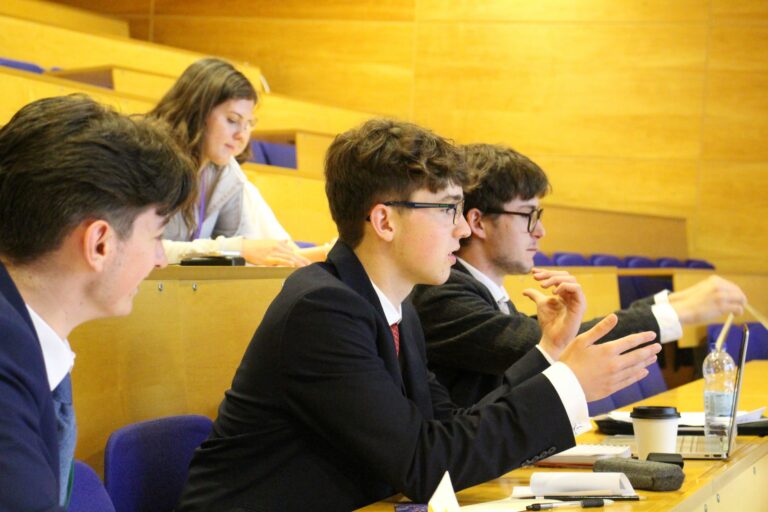
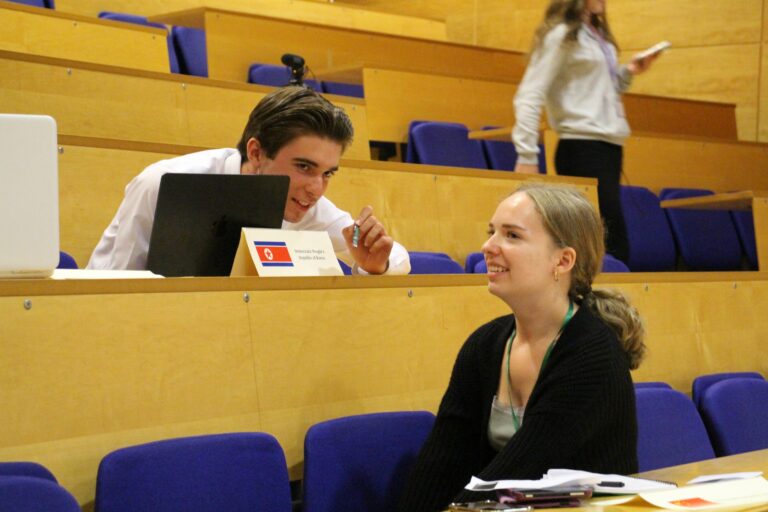
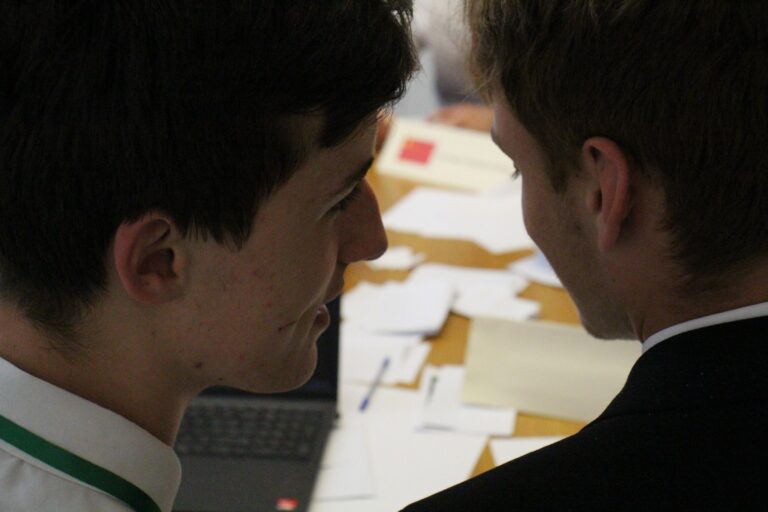
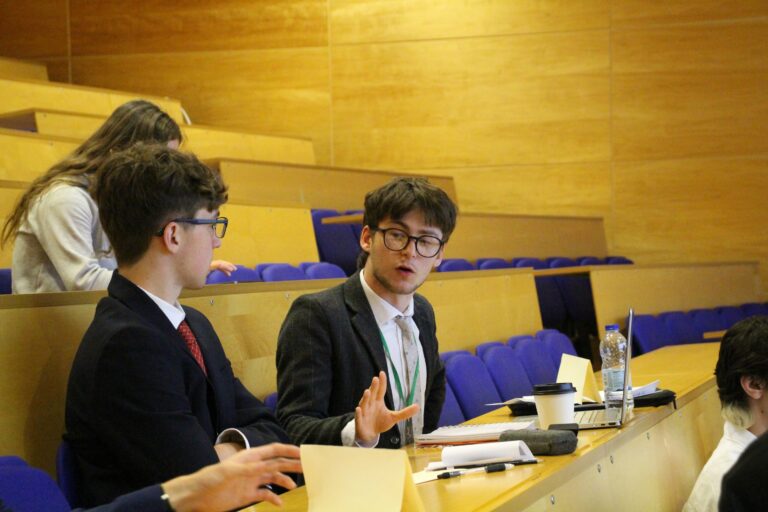
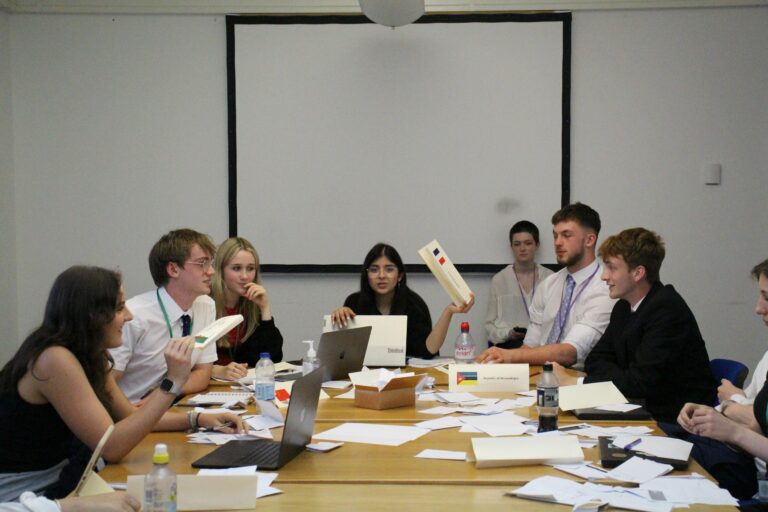
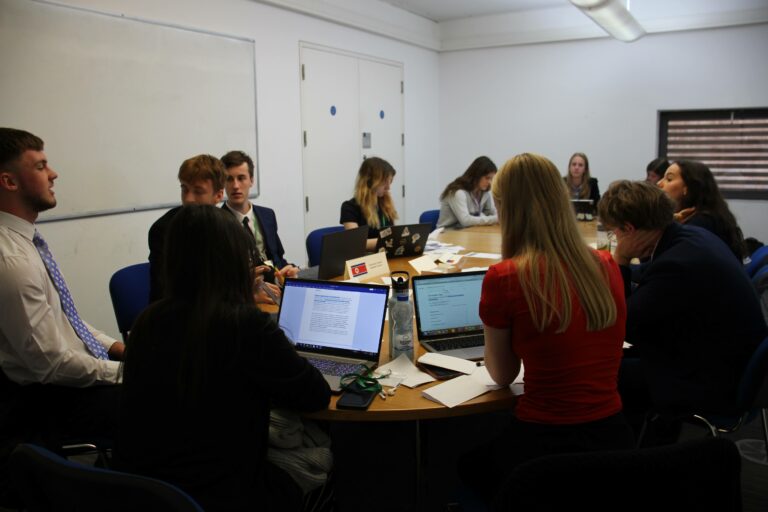
On day two the delegates move to debating in their committees! This is where the delegates are given the opportunity to showcase their state’s ideas and standpoints on global issues, such as climate change, nuclear non-proliferation, and human rights. After reaching a solution, it is voted upon, and either passed or failed.
Last year, a huge variety of global issues were discussed – including abortion laws, sustainable energy sources, the strength of UN peacekeeping forces, nuclear non-proliferation, and the obstruction of trade routes. Delegates established coalitions and presented their arguments to each other, using their proficiency in diplomacy and articulation to promote the views of their state.
DAY THREE: forum assembly
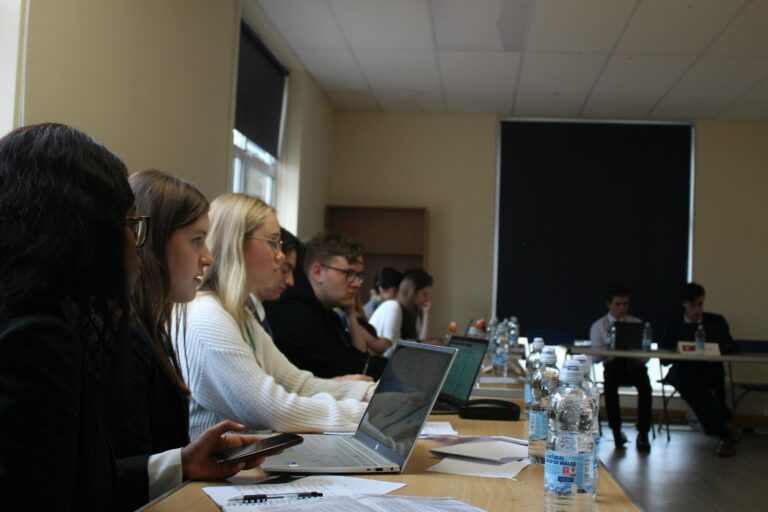
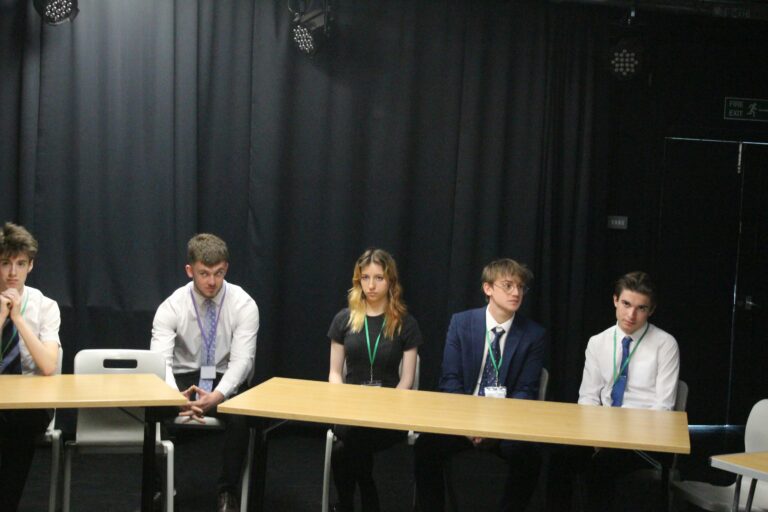
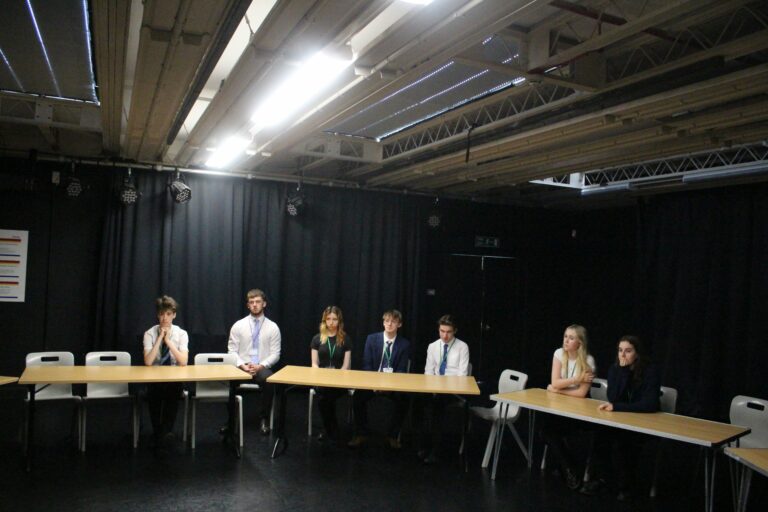
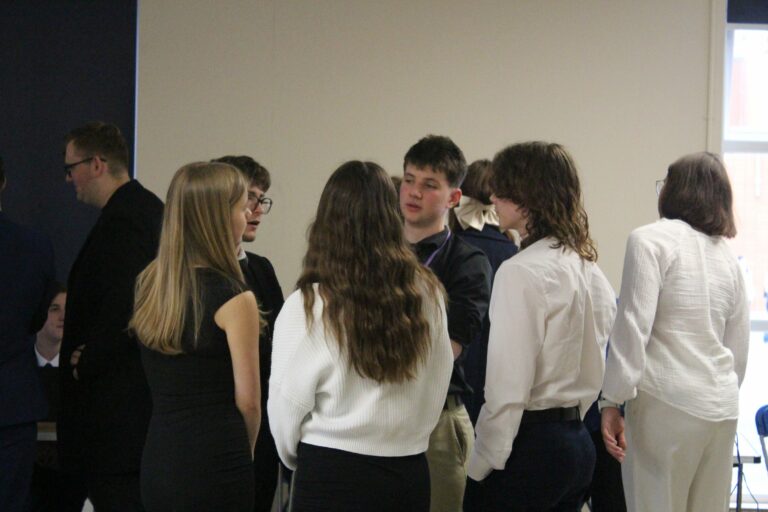
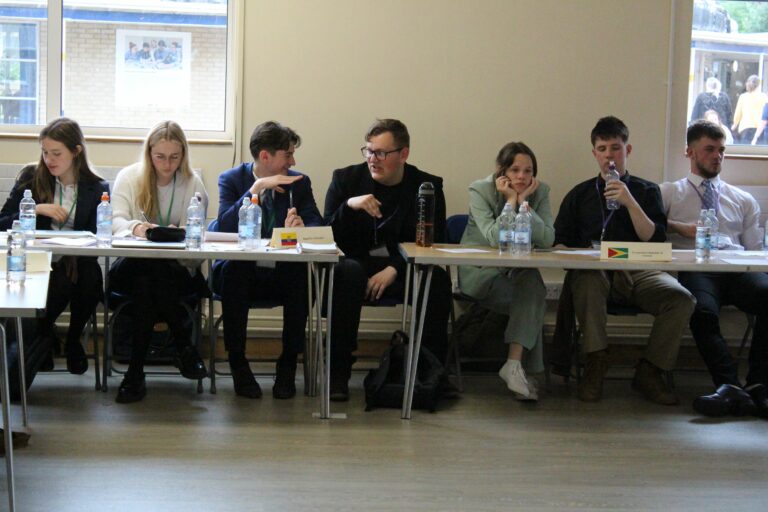
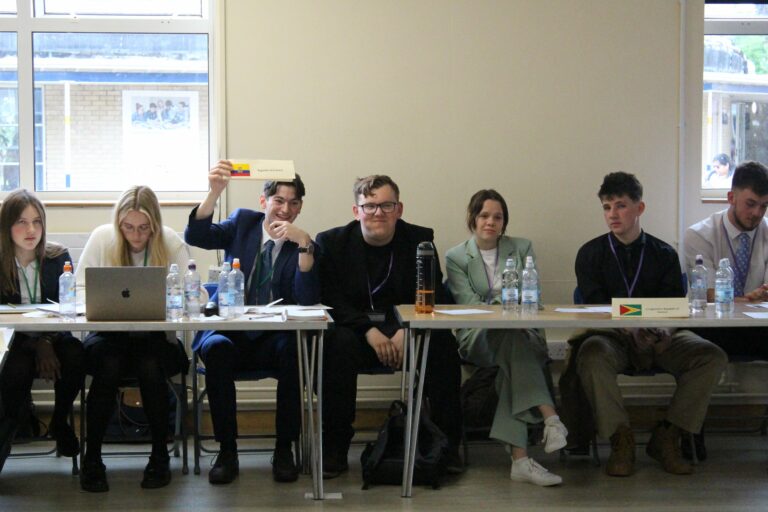
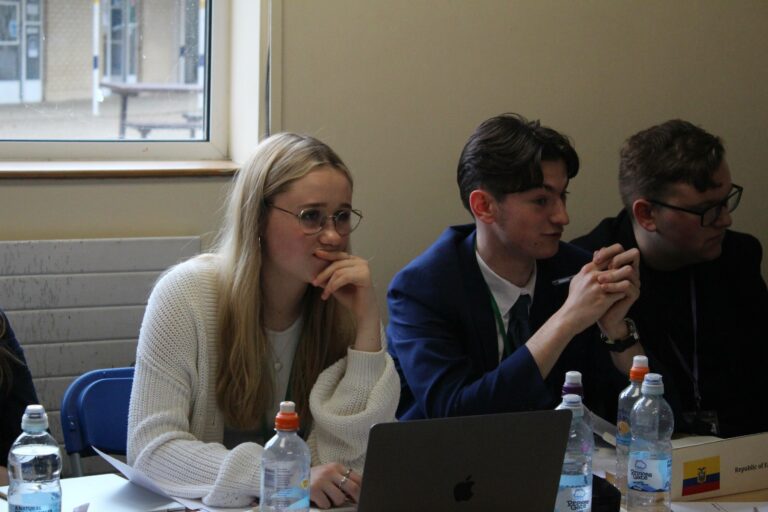
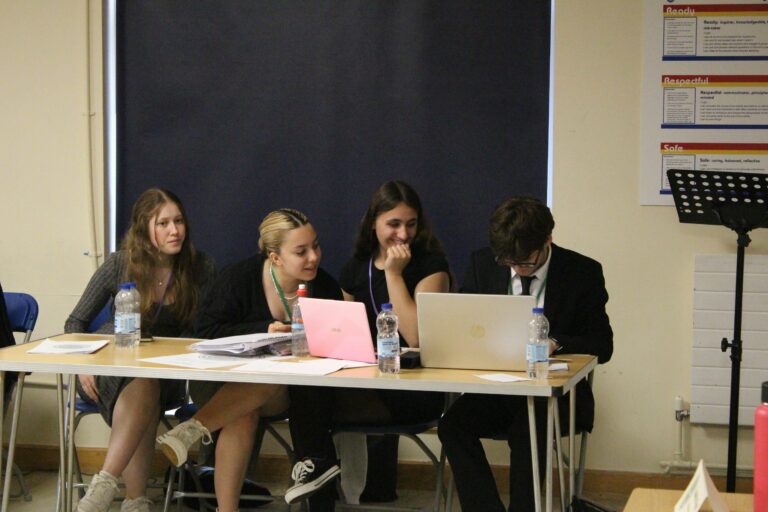
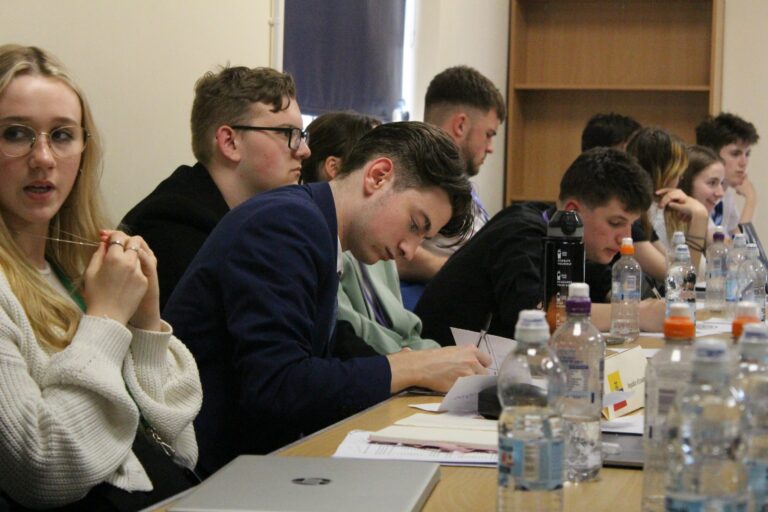
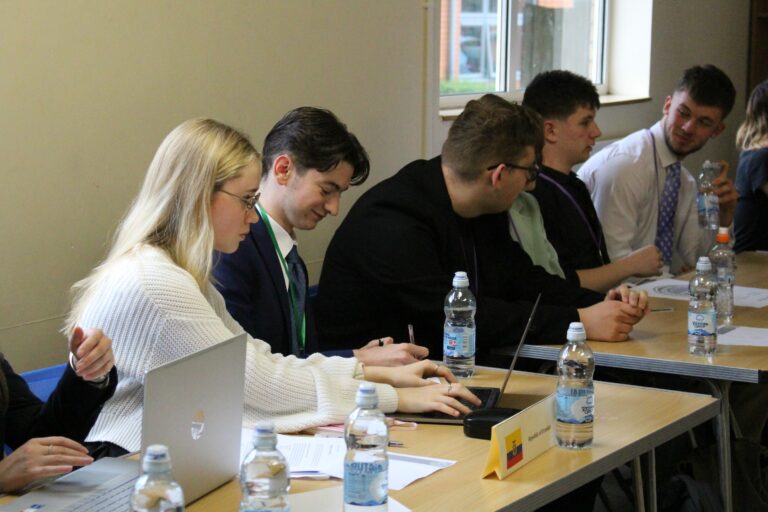
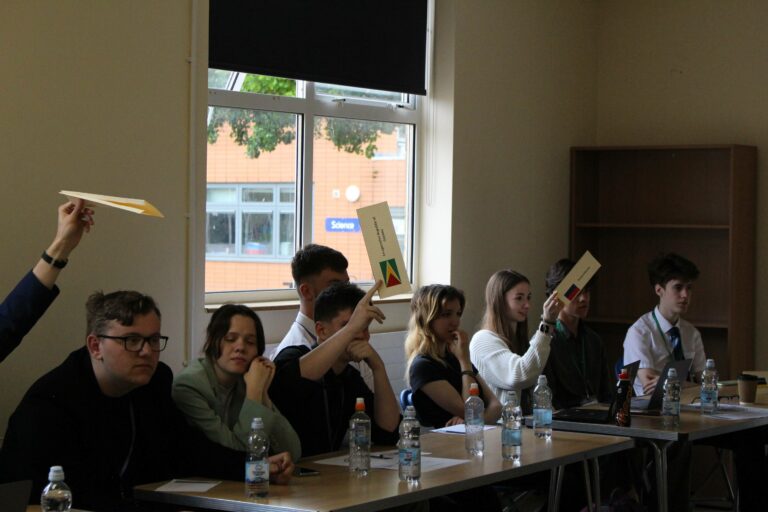
Finally, on the third day, delegates from all the committees come together and debate in a forum assembly. There, passed resolutions from different committees are debated and voted on again. Only once a resolution has been passed by the Forum Assembly is it final.

